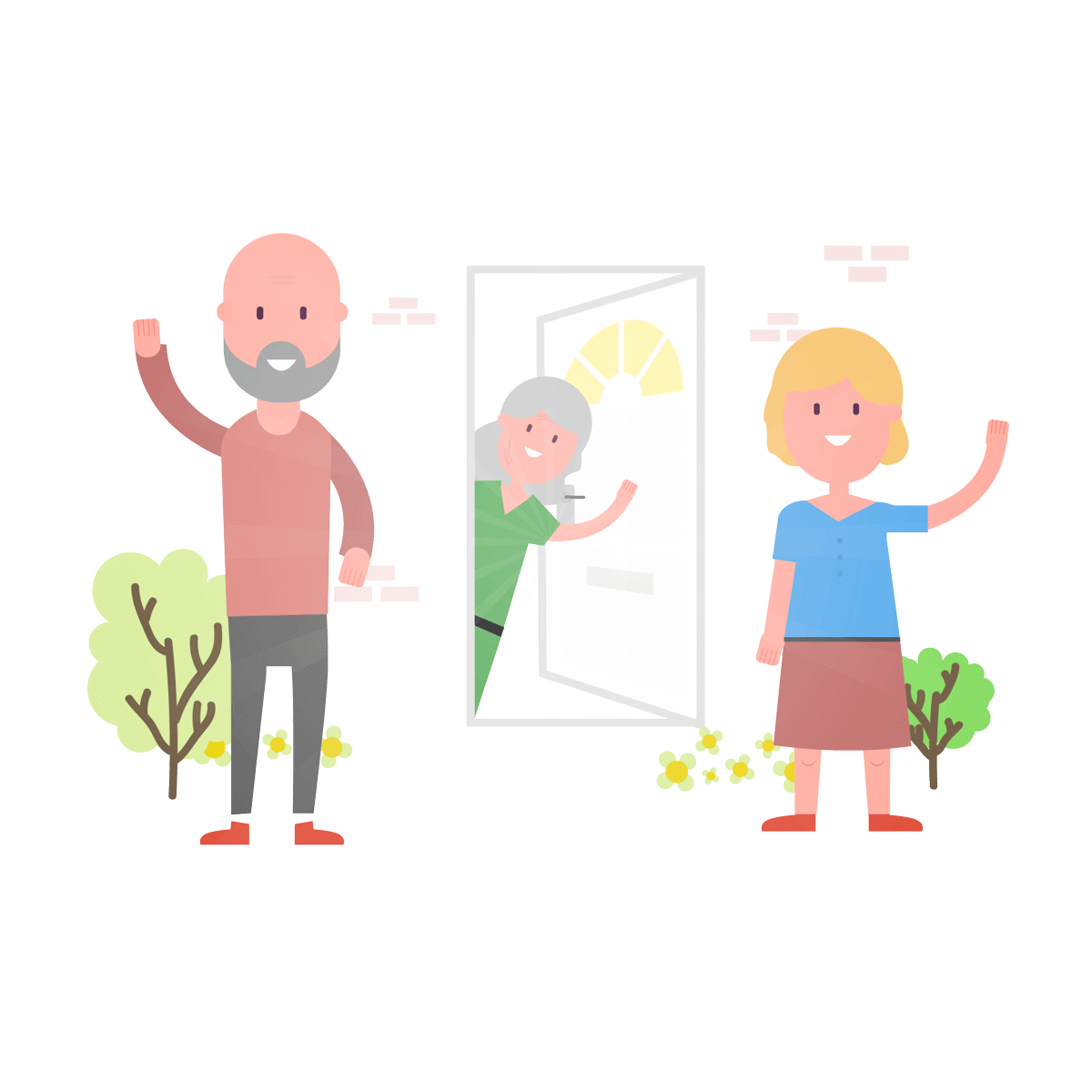


Often articles on helping ageing parents comes across as patronising. Treating them as children and ignoring the fact they’ve been adults for years and quite capable of making decisions for themselves!
This article is about being pragmatic over patronising, and caring about your parents – not ‘caring for’ or ‘dealing with’ them as they grow older and may need more support.
Did you know? Around one in four people between 45 and 60 care for their older parents. Source: Daily Telegraph / YouGov
https://youtu.be/IFEYNyDzoYY&w=640&h=385
Put yourself in their shoes
It can be difficult for parents to admit to their adult children they need help. Put yourself in their shoes. Imagine having to rely on someone to drive you to the shops? Or maybe those stairs they’ve climbed for the last 20 years have suddenly become insurmountable.
It could feel quite demoralising to have to ask your children to support you as you walk, or to admit you’re no longer up to looking after the garden that is your pride and joy. Understand that they might be feeling like they’ve lost control over their own life. This will help you appreciate their perspective and how they might react to your offers of help.
Don’t assume you know best
Just because they’re older and maybe frailer, it doesn’t mean your parents no longer know their own mind. Don’t assume that older age equals senility and you know better than them.
Converse, consult, respect. Talk about what’s happening and put your ideas on the table about how they might be able to continue living independently and happy, but with a safety net. However, ultimately respect that the decision is theirs whether it’s one you would make.
This obviously gets harder if one or both of your parents have been diagnosed with dementia, but it’s still vitally important to engage them in decision making as much as practically possible.
Treat them as a human being, not a condition
If your parents have health conditions, it’s easy to focus on their medical problems but that means you can often forget their personality! As human beings, we all need meaning and purpose in our life. Listen to your parents about what motivates them and makes them happy, and work with them to ensure they can continue to do these things.
Acknowledge the relationship might change
Inevitably there will be a shift in the relationship. You’ll no longer be the child that needs looking after. For some families, it brings them closer together but for others it can cause a divide.
Maybe you’ll both feel uncomfortable, maybe there’s bitterness about the role each sibling (if you have them!) has taken, or maybe you feel under pressure. In any scenario, being open to the changes and willing to talk about it may help stop a divide from forming.
Focus on retaining independence and control
A loss of independence can have a negative impact on a person’s physical and mental health. In fact, research has shown retaining independence is crucial to older people’s wellbeing.
Everything you do with your parents should be about enabling them, rather than disabling them. So think about the systems and structures you could put in place to help them maintain their independence and control. For example, are there changes that could be made to the house? Or could they outsource some of the more mundane chores and tasks that get them down?
And when thinking of independence, it shouldn’t be at the cost of companionship. As scientist, inventor and broadcaster Professor Heinz Wolff said in a debate in May: “Independence is a naughty word, we want companionship and connection!”
It’s easy to feel overwhelmed or even depressed about your parents needing support. But in our eyes, this stage of life can be hugely fulfilling and liberating. There just needs to be some strategies put in place to ensure your parents can live a happy life and feel good.
To recap, our advice is:
Get in contact with us at Evermore@Home on 0161 818 7374 or email happy@evermorewellbeing.com for more strategies and ideas about how we can help you, help your parents.
#LiveHappy.
By continuing to use the site, you agree to the use of cookies. more information
The cookie settings on this website are set to "allow cookies" to give you the best browsing experience possible. If you continue to use this website without changing your cookie settings or you click "Accept" below then you are consenting to this.